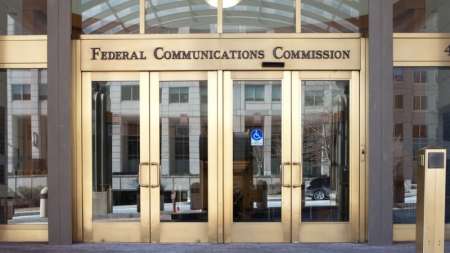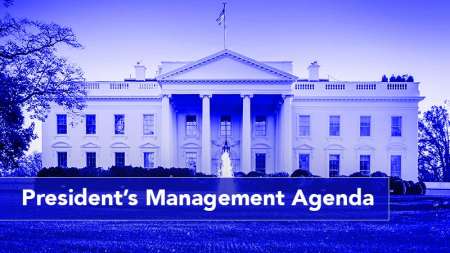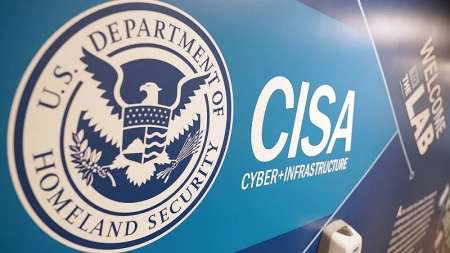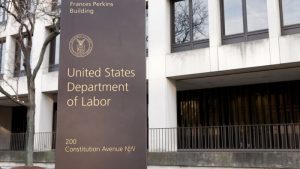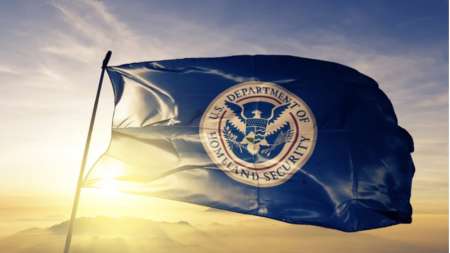The National 911 Program has selected consulting firm Mission Critical Partners to pilot and evaluate the first subset of the 911 DataPath data exchange model. […]
The Federal Communications Commission (FCC) announced that it is ready to authorize $1,041,074,000 over 10 years in its fifth round of funding for new broadband deployments through the Rural Digital Opportunity Fund. This marks the largest funding wave to date. […]
With 2022 just around the corner, MeriTalk is taking a month-by-month look at the most popular stories in Federal IT from 2021. […]
The Biden administration is looking for the public’s help to shape policy through its release of a draft learning agenda that will inform development of the President’s Management Agenda (PMA). […]
The Department of Navy has appointed retired Lt. Cmdr. Josh Reiter as the service branch’s Deputy Principal Cyber Advisor. Reiter, a veteran of both the Navy and Naval Cyber communities, has served in the post since September, according to his LinkedIn. […]
The Accreditation Board (CMMC-AB) for the Department of Defense’s (DoD) Cybersecurity Maturity Model Certification (CMMC) program has elected Vice Chair Jeff Dalton to be its next CMMC-AB Chair, the board announced Dec. 20. […]
In its latest wave of funding, the Federal Communications Commission (FCC) has committed nearly $630 million in funding for the Emergency Connectivity Fund (ECF) program to help close the homework gap. […]
This year further brought IT to the forefront of many organizations’ strategies in 2021, but as Federal chief information officers (CIOs) look to 2022, strengthening their agency’s workforce and cybersecurity posture are their big priorities for the year ahead. […]
The Senate voted on Dec. 18 to approve the Artificial Intelligence Training for the Acquisition Workforce Act, legislation that aims to improve the Federal workforce’s understanding of AI and ensure its ethical and safe use. […]
The holidays are typically a time to relax and spend time with loved ones, but the White House reminded corporate executives and business leaders that malicious cyber actors don’t take the holidays off in new guidance issued on Dec. 16. […]
The Alliance for Digital Innovation (ADI), a technology trade group that aims to help shape government innovation, is asking the Biden administration to increase both funding to the Technology Modernization Fund (TMF) and collaboration with industry stakeholders to best execute the vision outlined in President Biden’s customer experience (CX) executive order (EO). […]
Software and cloud services provider Oracle Corp. said today it agreed to buy Cerner Corp., a provider of digital information systems for the health care provider market, in a deal valued at $28 billion. […]
Despite a proclamation over the weekend from Sen. Joe Manchin, D-W.V., that he was a “no” on the existing version of Build Back Better Act legislation, Senate Majority Leader Chuck Schumer, D-N.Y., said in a Dear Colleague letter today that he plans to keep working on the reconciliation legislation until they “get something done.” […]
Digital security breaches have shown us that Federal agencies are more vulnerable than anyone thought, and their security tools are no longer effectively defending against them. This begs the question, what can IT leaders and staff at all levels do to better protect Federal networks? The short answer: it’s time to rethink our approach to basic security and how we defend every endpoint across the enterprise. […]
In November, Aaron Bishop was elevated to the position of chief information security officer (CISO) for the Department of the Air Force, taking over for Wanda Jones-Heath, who now serves as the Air Force’s principal cyber advisor. […]
When the pandemic hit, affordable and dependable internet became vital to keep the United States going. This sudden change highlighted the glaring disparity in internet connectivity to underserved communities. Congress attempted to remedy this issue with the Emergency Broadband Benefit (EBB), which offers low-income consumers a $50 discount on their internet bills. […]
The Cybersecurity and Infrastructure Security Agency (CISA) issued an emergency directive to Federal agencies today, requiring them to assess their internet-facing network assets for the Apache Log4j vulnerabilities and immediately patch these systems or implement other appropriate mitigation measures. […]
The National Security Agency (NSA) and the Cybersecurity and Infrastructure Security Agency (CISA) published the fourth installment on securing the integrity of 5G cloud infrastructures. […]
Department of Homeland Security (DHS) Deputy CIO Beth Cappello, whose agency snagged a $50 million Technology Modernization Fund (TMF) award earlier this year, this week urged Federal agency IT and financial organizations to align their expectations and resources in order to achieve better IT modernization results. […]
With two separate Technology Modernization Fund (TMF) awards already under its belt, the Department of Labor (DoL) is seeing the benefits of agency leadership’s buy-in into the funding concept as a way to make quicker headway on pressing IT modernization projects, the agency’s chief technology officer said at MeriTalk’s TMF Forward virtual event on Dec. 16. […]
The Defense Information Systems Agency (DISA) confirmed today that it plans to sunset its milCloud 2.0 cloud services contract by May 2022, but offered little in the way of firm detail on how it plans to migrate to comparable services the existing customer roster of milCloud 2.0, which is managed for DISA by General Dynamics Information Technology (GDIT). […]
The Cybersecurity and Infrastructure Security Agency (CISA) said Dec. 14 that there has been no confirmed compromise of any Federal agencies as a result of the Log4j vulnerability. But CISA reiterated it has added the vulnerability to its catalog of known vulnerabilities over the weekend, giving agencies two weeks to remediate and mitigate any potential harm. […]
The Government Accountability Office (GAO) is sustaining a protest by Microsoft after the company complained that the National Security Agency (NSA) improperly evaluated proposals for cloud services in support of NSA’s classified and unclassified computing requirements when it awarded a contract to Amazon Web Services (AWS). […]
The Department of Defense’s (DoD) cloud strategy is ever-changing but with the termination of the Joint Enterprise Defense Infrastructure (JEDI) cloud services contract earlier this year, the DoD has developed a more “agile” failure mindset – recognizing that it’s okay to fail, but also important to do so quickly, a Pentagon official said. […]
RegScale, a Tysons Corner, Va.-based provider of compliance automation technologies for highly regulated government and business organizations, officially launched operations on November 30 with $1.5 million of new funding. […]
The Department of Homeland Security (DHS) announced today that it is launching a new edition of its Hack DHS program – a bug bounty program started in 2019 – to identify potential cybersecurity vulnerabilities within certain DHS systems. […]
The Biden administration’s Cybersecurity Cybersecurity Executive Order issued in May 2021 has put a greater emphasis on cybersecurity at the Federal level – which is especially important after numerous high-profile ransomware and software supply chain attacks came to light earlier in the year – but many Federal cyber leaders say the Cyber EO only addresses a fraction of today’s cybersecurity challenges. […]
The Department of Defense (DoD) has awarded artificial intelligence (AI) application software company C3 AI a $500 million contract to deliver products and services for AI-enabled modeling and simulation, C3 AI announced Dec. 9. […]
The United States is partnering with Australia, Denmark, and Norway on an export controls and human rights initiative over the next year to prevent the proliferation of software and other technologies that enable human rights abuses. […]
President Biden released an executive order (EO) today with requirements for 17 different Federal agencies to make customer experience (CX) improvements across 36 areas. The order as a whole broadly focuses on ways Federal government agencies can create more seamless interactions with the public, Federal officials said on a press call explaining the White House directive. […]


